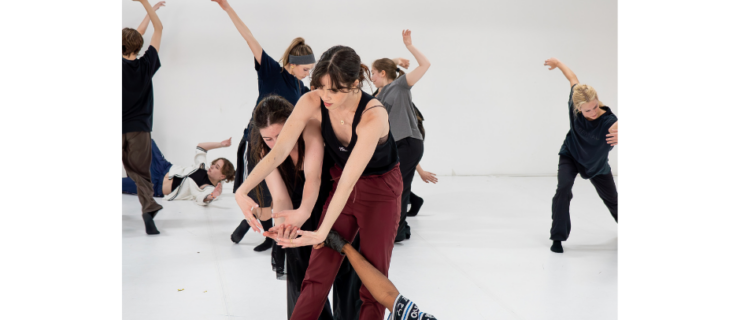Advice For Dancers
Am I washed up at 18? My dream was to perform in Broadway musicals, and I’ve been training at my dance studio for most of my life. Then I got rejected by my first choice for a BFA program in dance. My mom tells me it’s only because I had mono. I’m afraid it’s because I have no talent. What should I do?
California Dreamer
Los Angeles, CA
How about giving yourself a fair shake? While you get A+ for determination, few dancers nail an audition with mono, injuries, or other serious health problems. Instead, they don’t perform at their peak and the judges see it. The same principle applies to professional dancers who work against their doctor’s advice. So ignoring problems is a good habit to break while you’re still a student.
Right now, you’re afraid that you lack talent because one program turned you down. Yet every performer gets rejected sometimes. Success depends on how you deal with it. You can give up or you can look for your next opportunity. It’s not like you have to stop dancing. You could continue dance classes and audition for BFA programs next year. Or you could focus on a liberal arts degree and continue your training on the side. Of course, if your heart is broken, you may want a complete rest from dance. Your self-esteem has taken a major blow; give it time to heal. Meanwhile, you can always stay in shape at the gym.
Do you have any food suggestions for dancers who tour? I’m a healthy eater and try to cook my own meals whenever I can. My biggest problems are delis and restaurants. The food is usually filled with unhealthy fat or refined flour that doesn’t suit my taste or waistline.
Sara
NY, NY
Eating out is often a challenge even in your own neighborhood. The difference is that you always have your own kitchen to fall back on. Dancers who do most of their performing on the road have less leeway. Ask how the food is prepared (nix butter or trans fat), remove the bread basket from the table, and put half of a large entrée in a doggy bag ahead of time. Because people tend to eat more when they are chatting with others, it helps to lay down your utensils when you speak. If not, you can easily eat 75 percent more calories each time you have a meal with friends. Finally, there is a source you can use to find the healthiest food when you travel: Healthy Highways: The traveler’s guide to healthy eating (Goldbeck & Goldbeck, 2004). This paperback guidebook provides brief descriptions of natural-food stores and restaurants in all 50 states—including vegetarian and organic options. You can also get periodic updates about healthy travel by logging on to the Goldbeck’s website (www.HealthyHighways.com).
Last year my favorite dance teacher loved me. Now I might as well be invisible. Several people have told me she’s having personal problems. That doesn’t make me feel better. Who knows what she really thinks? Should I speak to her? My other teachers act like my dancing is improving. I feel like I should do something, but talking to her scares me to death!
Jen
New York, NY
I’m a big believer in communication. However, if your teacher is having problems, this might not be the best time to have a discussion about your work. You are already receiving positive feedback from other teachers that shows you’re progressing. Why not work on building up your confidence? It helps to set your own goals. These need to be challenging but attainable, like being able to do 16 fouettes in a month. The next step is to break this down into sub-goals (“I’ll practice 4 extra turns a week for 10 minutes after each class”). You can record your progress in a notebook, along with constructive corrections. Finally, feel free to adjust the time frame, depending on how things are going. Goal-setting makes class meaningful, regardless of how much or how little attention you get. It also boosts your confidence so that it’s easier to judge your work independently, regardless of attention from others. Remember: While all performers aim to please, you’re on shakey ground you depend solely on external approval. You will still need to take direction from your teachers or artistic director, but you need to dance for yourself!
I feel bad about complaining but my dance company has been performing nonstop for four months. All of us are exhausted and the reviews are getting negative. We’re not machines!
No More to Give
Washington, DC
Of course you’re not. While critics may know a lot about dance, I doubt that they can spot signs of burnout. Yet dancers who don’t have enough time to recover from strenuous performances often begin to lose their technique, due to weak, tight, inflexible muscles and loss of coordination. This makes it easier to slip and fall. Tense muscles are also more likely to tear. Meanwhile, stress hormones like cortisol impede the healing process. The remedy for chronic burnout is rest and limited activity for at least three weeks. Please take advantage of your next vacation and rest, instead of doing an extra gig. When your body says “Enough,” it’s important to listen. Other stress busters include sleep, meditation, laughter, and walking your dog in the park. If you are really wiped out, you might consider stress-management sessions with a cognitive-behavioral therapist. Most dance schools and companies have a referral list. Dancers who work for union-based companies also have the option of negotiating more free time in their contracts.




